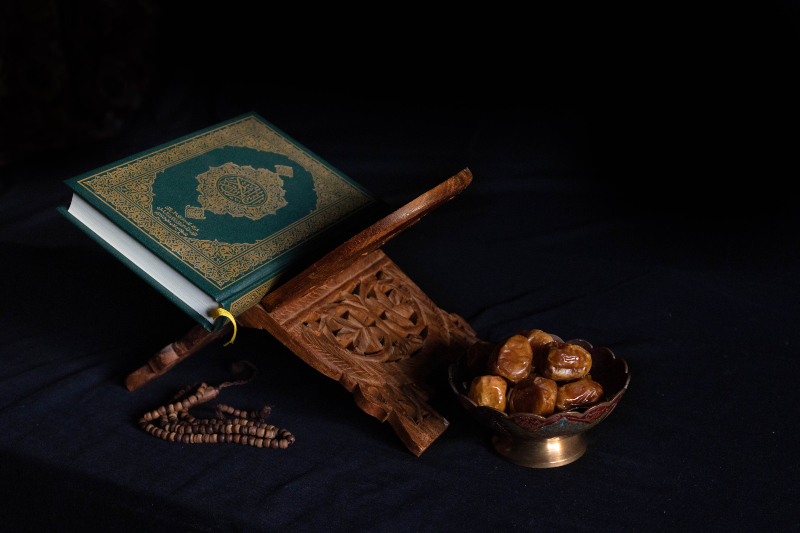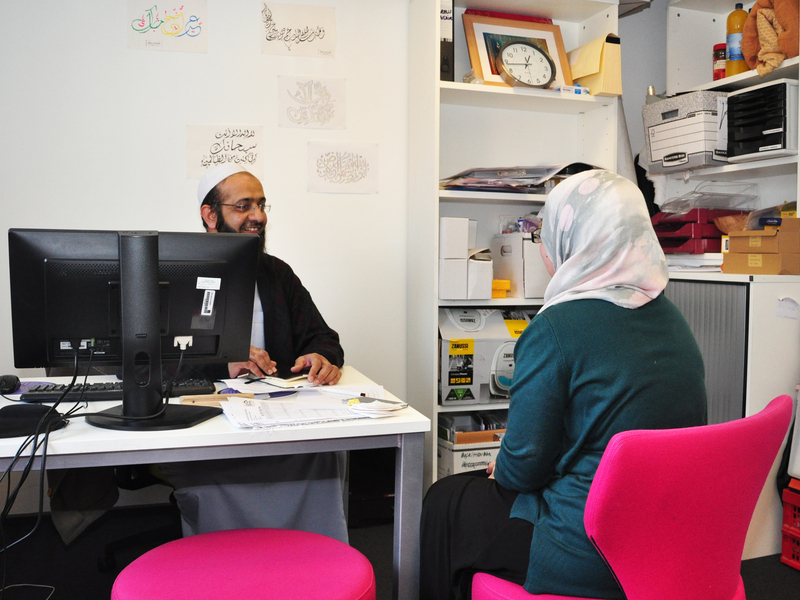For those observing Ramadan this year, we share some tips and information about the support services you can access from the University of Salford. If you aren’t Muslim but want to know what Ramadan is and why and how the tradition is followed, read on to find out more.
Ramadan is the ninth month of the Islamic calendar and this year it started on Saturday 2 April and will end around May 2, with Eid falling on 3 May. For those wondering why Ramadan started earlier this year, it is because the Islamic Calendar follows the lunar (moon) cycle, so it does not follow the same pattern as the calendar most people are used to.
Ramadan is a very important time for Muslims. It is a time for reflection and to get closer to their faith. It is a time for compassion, patience, and restraint. A common misconception of Ramadan that people have is that it is only for fasting. While that is one aspect of Ramadan, it is also a time for giving back and working on yourself.
The fasting starts at sunrise and ends at sunset. The time for breaking the fast is called Iftar, this is usually broken with water or dates ideally, but it can be done with anything that is available to you.

Before the start of the fast, it is recommended to have a meal before sunrise. This is known as Suhur (pre-dawn meal) and it is intended to give you energy for the next day. Ideally, you would want to include slowly digesting foods into the meal, so that you can keep energy throughout the day until Iftar.
How to wish someone a “Happy Ramadan”
For those that are unsure, the most common way to wish someone a Happy Ramadan is by saying, Ramadan Mubarak. However, different languages say it in different ways, but Ramadan Mubarak is the most universal way.
What celebrations mark the end of Ramadan?
The end of Ramadan is marked by the sighting of the crescent moon, which means that the month is over. Different cultures have different approaches to the sighting and as a result, they are not always celebrated at the same time.
Eid-Ul-Fitr is known to some as the Festival of Breaking the Fast. This marks the end of Ramadan and is the first day of the new month, Shawwal. This day is usually a time for gathering with family and your community and celebrating. So, for any students that are looking for events there is Eid in the park which takes place at Platt Fields park. It’s right at the end of Manchester’s famous Curry Mile , which can be extremely busy around this time so if you want to grab a bite to eat make sure to plan ahead!
What support is available for Muslim students at the University of Salford?
If you are from a different country, or even from a different city in the UK, this may be your first Ramadan away from home. As a result, you may struggle without having the support system that is usually found with friends and family back home.
The Faith Centre at the University of Salford is a welcoming space for you to go to irrespective of your faith and welcomes all students and staff. If you want to get in touch with a Chaplain, you can find their details on the Faith Centre page of the website. The Faith Centre is open from 9:00 to19:00 Monday to Friday.
If you are a new student, you can also go to the Faith Centre if you need some help finding your local place of worship. The Chaplains are always delighted to assist, and they also have strong connections with the local faith communities.
For any students that are wanting to break their fast during Ramadan, they are permitted to bring their own food to the Faith Centre for Iftar. The Faith Centre does provide water and dates and occasionally will make arrangements for a full Iftar to be provided for students and staff.
Or if you find you are struggling with how to handle your studies at this time, you can find guidance from Imam Rashid at the Faith Centre. This advice includes how to approach Ramadan during university life from what to do when exams are taking place to daily practices.

Ramadan Mubarak to all the people who read this and if it’s Eid by the time you read this then also an Eid Mubarak!





Leave a Reply